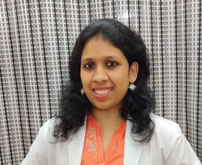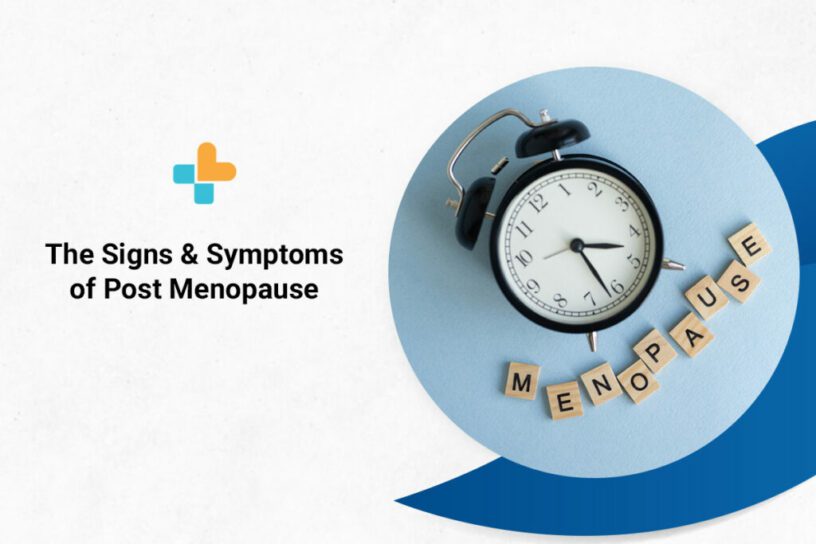If you’re here reading about this, chances are you, or someone you know might be going through the initial stages of menopause i.e., perimenopause. Has the person in question gone through debilitating hot flashes and/or night sweats lately? They are probably about to go through the grueling ordeal of menopause. People are generally not aware of the signs and symptoms of post menopause, or even menopause, let alone being able to comprehend the changes that occur throughout the phase.
A basic sense of knowledge about the topic, for example, ‘what are the changes that women undergo during post menopause?’, ‘what is the difference between menopause and post menopause?’, so as to be senstive about the situation and manage the signs and symptoms of post menopause to their best.
Let’s go through what one should expect going through this inevitable part of femine biology:
The Transition to Menopause, aka Perimenopause
Perimenopause is the start of the journey toward menopause, which becomes “official” after 12 months without periods. During perimenopause, your menstruation (and moods) become unpredictable as hormone production starts to vary. This results in irregular periods where you might skip a month (or two), or your flow might get heavier than usual (or lighter).
While perimenopause begins several years prior to your final menstrual cycle, the total duration is nearly impossible to predict and can last anywhere from 3 to 10 years.
Menopause
Menopause is the biological signal for the end of the menstrual cycle. You will experience your last period during this time. You won’t be certain if you are past menopause untill a year has passed since the last one. Although menopause typically occurs at the age of 51, it can also prematurely or get delayed by quite a few years aswell. If it happens under the age of 40, it’s termed premature menopause but typically, the average age range is 48-55 years. Some experts liken this period to “puberty in reverse”.
Menopause Symptoms
- Hot flashes and night sweats
Around 80% of women experience these sudden sensations of heat that hit the face, head, or chest. These hot flashes can last anywhere from 1 to 5 minutes and can range from fairly mild to quite debilitating.
- Vaginal dryness and pain
Menopause is the gradual decline of hormones in your body like estrogen and progesterone, which affects the moisture level of your vagina, and may also decrease its lubrication. Itching, irritation, or burning sensations are not uncommon for women going through menopause.
- Anxiety, depression, mood swings
The variation in the levels of estrogen and progesterone causes the range of moods and feelings between elation and despair. During menopause, these hormones go haywire, leading to possible mood swings, an increase in anxiety, depressive episodes, and more. With time, the hormonal level evens out and things often improve, but medication, therapy, and healthier lifestyle habits can often help.
- Weight gain
The fluctuating hormones also cause your metabolism to become sluggish, leading to weight gain. Menopause, postmenopause and weight gain are intrinsically related, especially with age, and it often leads to a layer of fat building around the waist, which is affectionately termed “menopot”.
Postmenopause
Postmenopause is the period of time following menopause. When you reach postmenopause, your monthly cycle has stopped for more than a year. Your reproductive years are over at this point in your life, and you are no longer ovulating (releasing eggs).
What to Expect?
Postmenopausal women typically still experience lingering menopausal symptoms. These symptoms are often less intense and gradually wane over time for most women. Any lingering symptoms are owed to the declining levels of your reproductive hormones.
The following symptoms are still to be expected for people in the postmenopause stage:
- Hot flashes
- Vaginal dryness (or bleeding)
- Mental health issues – anxieties, depression, insomnia
- Weight gain
- Dry skin
How to Deal With Postmenopause
- Depression and other postmenopausal side effects can be managed with regular exercise, meditation, and other relaxing activities.
- Consuming a diet high in phytoestrogens, which are estrogens derived from plants, such as whole-grain cereals, flaxseed, chickpeas, and beans
- A decrease in alcohol and caffeine intake has also been proven to be helpful.
- The use of a water-based lubricant during intercourse can combat vaginal dryness and reduce pain.
The entire cycle of menopause, from peri to post, menopause can be uncomfortable and bring out new and unexpected health problems and concerns. It is important to consult a healthcare professional for any exacerbated symptoms you experience or address concerns that you may have.Ayu Health is here to answer all your questions and help you overcome problems related to menopause. For any queries or consults, book an appointment by visiting our website or call us at 08069489584.
Read more: The Signs and Symptoms of Post Menopause
Our Hospital Locations
Gynaecology Surgery Hospitals in Chandigarh | Gynaecology Surgery Hospitals in Bangalore | Gynaecology Surgery Hospitals in Jaipur | Gynaecology Surgery Hospitals in NCR | Gynaecology Surgery Hospitals in Hyderabad
Our Doctors
Gynaecology Surgery Doctors in Chandigarh | Gynaecology Surgery Doctors in Bangalore | Gynaecology Surgery Doctors in Jaipur | Gynaecology Surgery Doctors in NCR | Gynaecology Surgery Doctors in Hyderabad
About the Author

Dr. Nikitha Murthy B.S.
Dr. Nikitha Murthy B.S. is a renowned Gynaecologist currently practicing at Ayu Health, Bangalore.
He is s a Consultant with IVF Access at its Rajajinagar clinic. She has over 6 years of experience. Dr. Nikitha has a post-graduation (MS) in Gynaecology, DNB from the National Board of India, and a Fellowship in Reproductive Medicine. He also has vast experience in Post-Graduation (MS) in Gynaecology and DNB.




